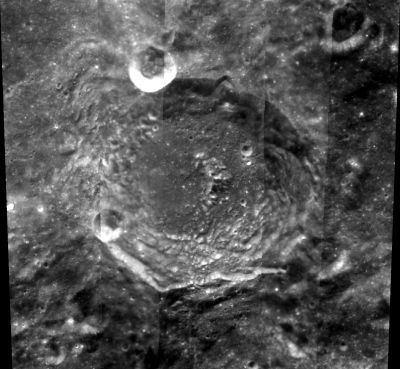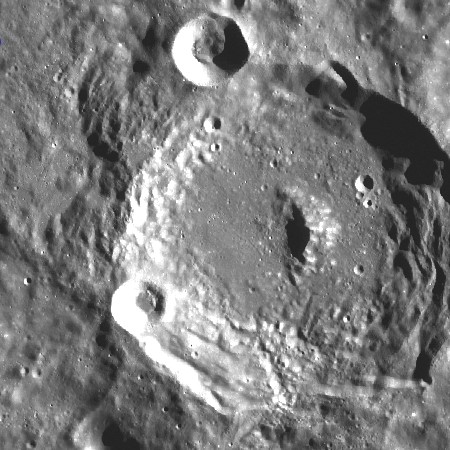Langmuir
Contents
Langmuir
|
Lat: 35.7°S, Long: 128.4°W, Diam: 91 km, Depth: km, Rükl: (farside), [/Stratigraphy Imbrian] |
Table of Contents


left: Clementine . right: LROC . A blanket of ejecta from Langmuir has partially covered older [/Chebyshev Chebyshev]. Note prominent massif at lower right, part of eastern
[/South%20Pole%20-%20Aitken%20Basin South Pole - Aitken Basin] rim .
Images
LPOD Photo Gallery Lunar Orbiter Images
Frame 20, made by ZOND 8, shows Langmuir near the frame's right margin. Langmuir is the pronounced "Langrenus"-like crater with the central peak.
Research: Danny Caes
Maps
([/LAC%20zone LAC zone] 122A1) USGS Digital Atlas PDF
Description
Description: Wikipedia
Additional Information
- [/Central%20peak%20composition Central peak composition]: A, GNTA1, GNTA2 & AGN ([/Tompkins%20%26%20Pieters%2C%201999 Tompkins & Pieters, 1999])
- TSI = 25, CPI = 15, FI = 20; MI =60 [/Smith%20and%20Sanchez%2C%201973 Smith and Hartnell, 1973]
Nomenclature
Irving Langmuir (January 31, 1881 - August 16, 1957) was an American chemist and physicist. His most noted publication was the famous 1919 article "The Arrangement of Electrons in Atoms and Molecules" in which he outlined his "concentric theory of atomic structure". While at G.E., from 1909-1950, Langmuir advanced several basic fields of physics and chemistry, invented the gas-filled incandescent lamp, the hydrogen welding technique, and was awarded the 1932 Nobel Prize for Chemistry for his work in surface chemistry.
LPOD Articles
Bibliography
This page has been edited 1 times. The last modification was made by - tychocrater tychocrater on Jun 13, 2009 3:24 pm - afx3u2